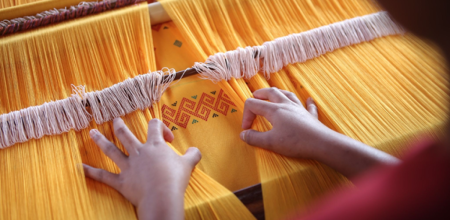Qatar’s Double Game Exposed: Israel Breaks the Illusion of Neutrality
Israel’s Bold Strike in Qatar: A Dangerous New Chapter in Middle East Conflict
On September 9, 2025, the Middle East woke up to an event nobody expected: Israel carried out an airstrike in Doha, Qatar. This was not just another strike in Gaza or Lebanon—it was the first known Israeli attack on Qatari soil. The move has shaken global politics, angered world leaders, and left many asking: what next?
What Exactly Happened?
The strike hit a residential compound in Leqtaifiya (West Bay Lagoon), Doha—a high-profile neighborhood known for embassies and luxury residences. Reports say the building was being used as a Hamas political bureau, where senior leaders were meeting to discuss a possible ceasefire deal.
- Casualties: Six people were killed, including the son of senior Hamas leader Khalil al-Hayya, his office director, three bodyguards, and a Qatari security officer.
- Hamas leaders survived: According to Hamas, its top leadership escaped unharmed. But the strike sent a chilling message—you’re not safe even in Doha.
For Israel, the operation was a precision hit aimed at Hamas command. But for Qatar and the wider world, it was a shocking breach of sovereignty.
Why Did Israel Do This?
Israel’s official line is clear: this was about targeting Hamas leadership and stopping them from plotting future attacks. Some analysts say the strike may also have been intended to derail ongoing U.S.-brokered ceasefire negotiations.
The timing is suspicious—Hamas leaders were reportedly in discussions about a hostage and ceasefire deal. By striking, Israel may have been signaling: We don’t want outside deals; we will finish Hamas on our own terms.
How the World Reacted
The fallout was immediate and loud:
- Germany called the attack “unacceptable” and said it violated international law.
- Turkey accused Israel of adopting “terrorism as a state policy.”
- The UK condemned the strike, warning it threatened regional stability.
- The UN, EU, and Arab League joined in with sharp criticism, saying this kind of escalation makes peace impossible.
Even Israel’s closest allies were uncomfortable. Nobody likes to see bombs falling on a nation like Qatar, which has positioned itself as a neutral mediator in the Israel-Hamas conflict.
Trump and the United States – Walking a Tightrope
The U.S. was informed shortly before the strike, but the White House insists it had no role in planning or approving it.
Donald Trump, who has built strong ties with Qatar, was not happy:
- He called the strike “unfortunate”, stressing it doesn’t serve U.S. or Israeli goals.
- He scolded Netanyahu for telling the U.S. “too late” and made it clear that he did not approve the move.
- To calm Qatar, Trump quickly ordered a new Defense Cooperation Agreement, promising U.S. support and security guarantees.
Why the nervousness? Because Qatar is home to Al Udeid Air Base, the largest U.S. military base in the region—a vital hub for American operations in the Middle East. Any escalation here could put thousands of U.S. troops in danger.
Qatar’s Reaction
Qatar, understandably furious, called the strike a blatant violation of sovereignty. Officials hinted at reviewing their role as a mediator, though the Prime Minister later clarified that Qatar will continue peace efforts, while also reserving the right to respond.
For a country that has spent years positioning itself as a peace broker—and hosting Hamas leaders under international watch—this was an embarrassing and infuriating moment.
Hidden Truths Few Talk About
- Doha as Hamas HQ: Many people don’t realize that Doha has long served as a safe base for Hamas’s political leadership. While Gaza burns, leaders have lived in luxury in Qatar. Israel knew this, but never dared to strike—until now.
- First Strike on Qatar: This is the first Israeli strike ever on Qatari territory. That alone is a diplomatic earthquake.
- U.S. Base Risk: Just a few months ago, Iran fired missiles at Qatar’s Al Udeid Air Base. Now Israel bombs Hamas leaders in the same city. Qatar is turning into a frontline battlefield, even while hosting the most important U.S. military hub in the region.
- The Bigger Game: Some analysts suggest Israel wanted to sabotage U.S. peace efforts. A ceasefire deal might have weakened Israel’s hardline military push, so striking Hamas in Doha was a way of taking control of the narrative.
What’s Next? Will the Attacks Continue?
This strike opens a new and dangerous chapter. If Israel is willing to bomb Qatar, a U.S. ally, it shows they are ready to expand the battlefield beyond Gaza, Lebanon, and Syria.
- Hamas may retaliate by escalating rocket fire or targeting Israeli assets abroad.
- Qatar could reduce cooperation with Israel and the U.S., complicating peace talks.
- The U.S. faces a nightmare balancing act: it needs both Israel and Qatar but cannot allow its biggest military base in the region to become a war zone.
Final Thought – The Hypocrisy Nobody Talks About
Here’s the uncomfortable truth: Qatar has played a double game for years. On one hand, it acts as a peace broker, shaking hands with U.S. presidents and UN officials. On the other, it has hosted Hamas leaders in luxury apartments while ordinary Palestinians suffer in Gaza under blockade and bombs.
Israel’s strike tore away that mask. The world now sees the contradiction—Doha can’t claim to be a neutral mediator while providing a safe haven for those directing violence.
The question is simple but explosive:
- Should Qatar continue sheltering Hamas leaders, or finally force them out?
- Is it fair that children in Gaza pay the price of war while their leaders live in Doha’s five-star comfort?
Israel’s strike was brutal, yes. But it also exposed a hypocrisy that the world preferred to ignore. And now, with the war spreading to Qatar’s doorstep, that hypocrisy has turned deadly.



